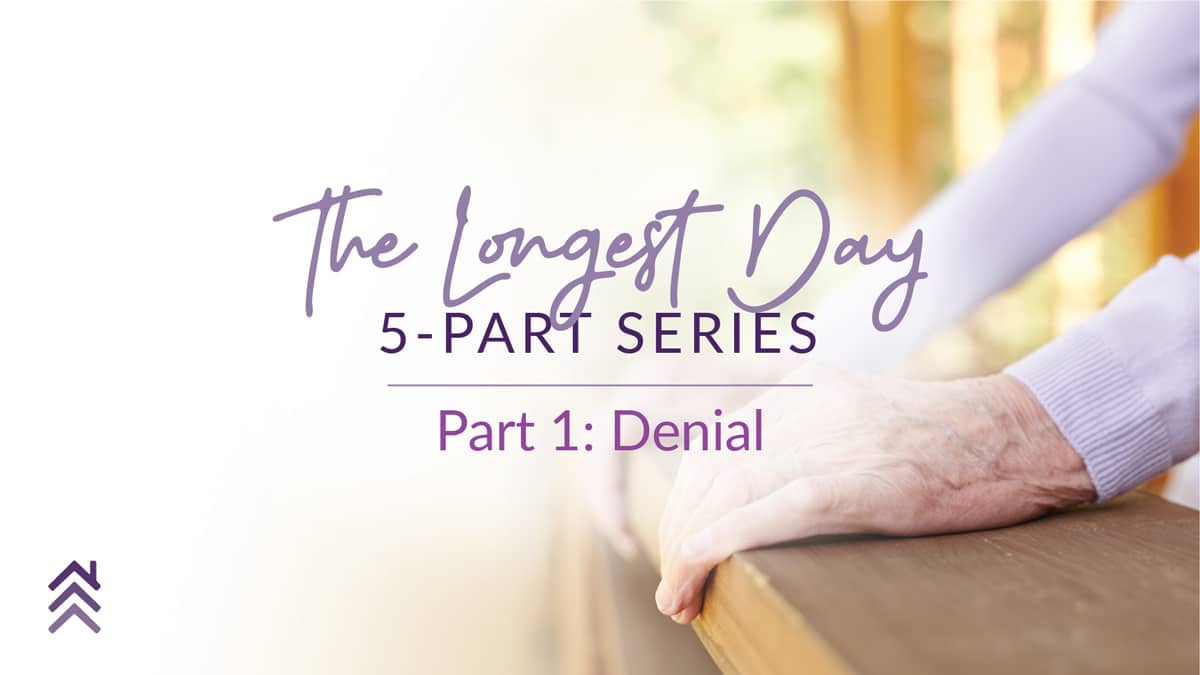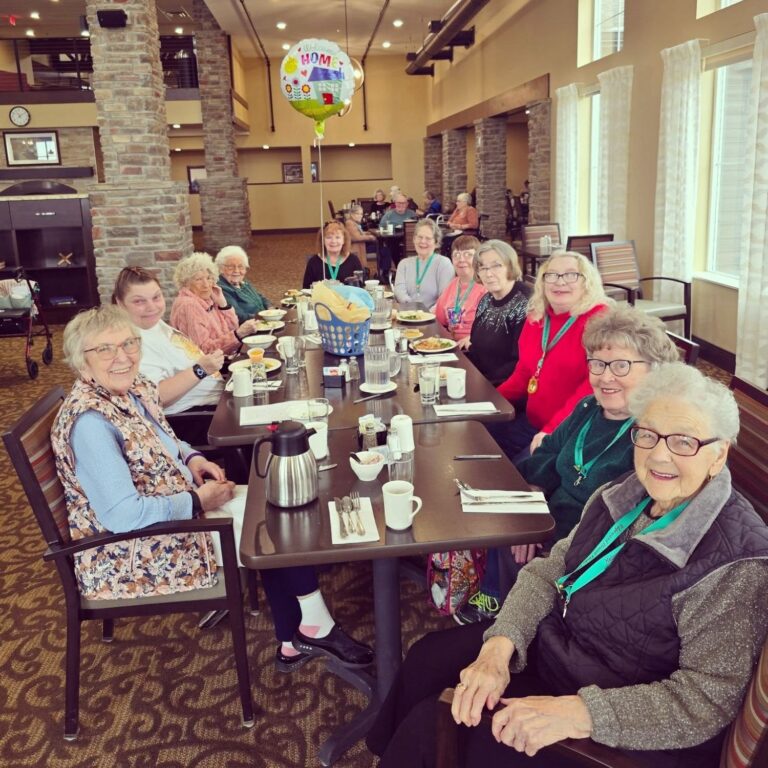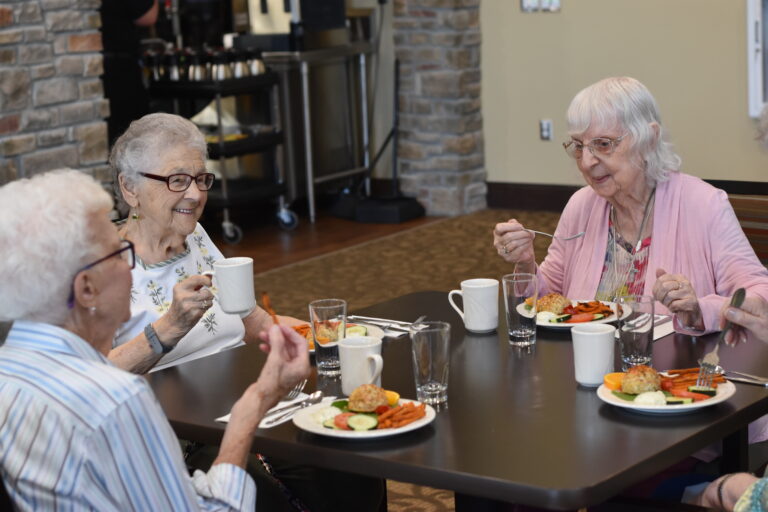
About the series: According to Elisabeth Kübler-Ross’s model, there are five stages of grief: denial, anger, bargaining, depression, and acceptance. While this model explains the grief cycle based on bereavement, our blogs in this 5-part series will use a blend of testimonies and facts to help you understand the impact of the stages in the grief cycle as it relates to Alzheimer’s disease.
An Alzheimer’s diagnosis is the last thing anyone wants to imagine. If you were to begin to notice cognitive changes such as memory loss in yourself or a loved one, you might reach for any number of possibilities like lack of sleep, dehydration, low blood sugar, or other diagnoses as potential causes. Unfortunately, the clock is ticking while memory loss is present, and the root cause is unknown.
Find Senior Living Near Me
Signs of Alzheimer’s
Alzheimer’s doesn’t play by the rules. There’s no guarantee that someone has to be at an advanced age when it happens, and other health issues can mask the most obvious symptom: memory loss.
The Alzheimer’s Association has provided the following 10 warning signs of Alzheimer’s:
The Cause of Symptoms Can Be Tricky
Melanie Williams of the Montana chapter of the Alzheimer’s Association brings a unique perspective on the disease. Not only is she a staff member of the Alzheimer’s Association, but her mom has Alzheimer’s.
When Melanie’s mom first presented with health problems, it was not immediately obvious that Alzheimer’s could be the culprit. Her mom is a diabetic. Diabetes can impact someone’s memory, and you can’t manage your health properly if you can’t remember things. This led to frequent hospitalizations for diabetes complications before Alzheimer’s was eventually diagnosed. Stay tuned during the series as we share more of Melanie’s experience.
The Importance of a Diagnosis
Being accurately diagnosed with Alzheimer’s in the early stages helps the person to make choices while still being able to do so. We wrote a blog some time ago titled “Ray’s Story.” Ray suffered memory loss and cognitive changes from Lewy Body Dementia. When he was diagnosed, he could make decisions for his future. He took tours of residential communities, and with his supportive family by his side, he found the care he needed to remain safe and live with dignity. Check out his story here.
A diagnosis helps families and caregivers to learn how to support someone with Alzheimer’s best. Not knowing what it entails can add to the challenges. A common difficulty is that caregivers may not understand how taxing it can be. It takes a team of caregivers to help. If one caregiver plays multiple roles, the emotional rollercoaster can seriously affect their health.
When former Wisconsin Governor Marty Schreiber joined us a couple of years ago for an interview, he explained, “If Alzheimer’s is bad, ignorance of the disease is worse.” Marty wrote the book My Two Elaines in honor of his wife, who suffered from Alzheimer’s and sadly lost her battle in 2022. His book highlights the challenges he faced as a spouse and a caregiver.
Complications of the Denial Stage
The denial stage opens the door to risks like financial manipulation, risky weight gain or loss, kitchen fires, dehydration, medication errors, and unsafe driving. There’s also a risk of becoming lost in the community due to forgetting familiar information.
When relatives from afar visit or call, their conversations might go back in time. Because long-term memories tend to remain intact, those who don’t see someone frequently may be completely unaware that anything is different. This can lead to family disagreements about how to support their loved ones.
Each day can present differently, so the “good days” can put someone back into denial, even with a diagnosis. When all is going right, and you or your loved one seems lucid, it’s easy to think the doctor is wrong or maybe the symptoms have stopped. Because Alzheimer’s progressively worsens, it’s crucial to be prepared for shifts because of the dangers that can arise.
If you’re finding yourself caught in the denial stage of the grief cycle—whether you have Alzheimer’s or your loved one has it—please consider learning all you can. By reading books, joining book clubs, attending lectures, and talking with others, you can climb the perilous hurdle of denial to make important decisions about future care.




